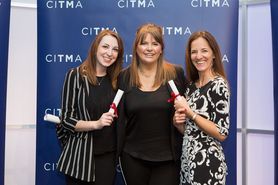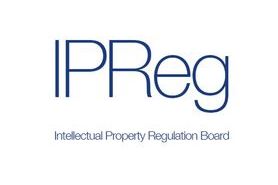How to become a Chartered Trade Mark Attorney
Brands are powerful and valuable business assets – as a Chartered Trade Mark Attorney (CTMA), part of your role will be to advise how to protect and exploit these assets both nationally and globally.

Working with individuals and businesses, from SMEs to big multi-nationals, CTMAs help identify, protect and exploit intellectual property (IP). In many cases you will manage large portfolios of trade marks and other IP such as designs, copyright and domain names.
CTMAs manage the life of a trade mark, from advising on whether a particular brand or logo can be legally used and registered, to managing any disputes, through to renewing the rights.
You will advise on conflicting trade mark applications and how to stop unwelcome use of a trade mark by others and taking action if necessary.
You will also be involved in handling co-existence agreements, licencing agreements, transfer of ownership, expanding the scope of protection.
As a profession we also regularly advise on registered designs and there are opportunities to specialise in other parts of the IP mix such as domain names, trade secrets, geographical indications and copyright too.
There are some 900 Chartered Trade Mark Attorneys in the UK.
Starting Point
Many CTMAs get taken on as graduate trainees by firms of Chartered Trade Mark Attorneys, law firms with an IP department, or a large businesses with an 'in-house' IP or legal department.
Look out for opportunities at careers fairs, graduate job websites, our jobs board or directly via firms with an active IP practice.
We also see firms promoting from within. Those employed as trade mark paralegals and other support roles going on to take the trade mark attorney exams and qualifying as CTMAs.
Click here to find out more about the other roles in the IP professions
Getting qualified
Just like 'barrister' or 'solicitor', 'Registered Trade Mark Attorney' is a title protected by law. To call yourself one, you will need to take a certain set of qualifications.
Firms will usually pay for trainees to take the formal qualifications required to become a CTMA. You need to take two postgraduate qualifications and fulfil at least two years of on the job training in order to qualify.
Whilst qualifying as a trade mark attorney can be challenging and take a number of years, mixing study with working in private practice or in-house, a career in the profession can be both intellectually stimulating and rewarding.
Click here to find out more about how to qualify
Once qualified, you will be on the Register of Trade Mark Attorneys, and can apply to CITMA to become a Chartered Trade Mark Attorney.
Practicing CTMAs have a professional obligation to ensure that they maintain their skills and knowledge at the necessary level to be able to provide a competent service to existing and potential clients.
CTMAs are required to undertake a reflective approach to maintaining their continuing professional development. This approach is now common place amongst most regulated professions, inside and outside the legal sector and involves:
- Reflecting on their practice and identify areas for learning and development
- Plan activities to address their development needs
- Recording and evaluating the activities undertaken, and properly consider whether those activities met the development needs identified.
Earnings
Salaries vary depending on where in the country you are and the size of the firm. However, as a new trainee you can expect to get in the region of £25,000 - £35,000.
As you develop your experience and skills you could see your salary increase to the region of £42,000 - £55,000 as a newly qualified CTMA.
With five years' experience the average salary is in the region of £75,000. And if you reach partner level, this could increase beyond £90,000.
Do you need a legal background?
The simple answer is no. Potential employers looking to take on a trainee will often require potential employees to have a good undergraduate degree, often a 2:1 or better. This does not necessarily need to be in law, other degrees are also valued too. However, having a law degree can be an advantage, as it will exempt you from some modules of the qualification courses.
It is also possible to become a CTMA without a degree provided you have the relevant experience working in the profession.
As a CTMA you will be advising on and managing commercially crucial activities. Therefore, it is essential that you have an analytical mind, display excellent judgement, and have outstanding communication and problem solving skills.
Much of your training will be on the job. You can expect to have one, or several, mentors, who you will shadow. Gradually you will take on more responsibility as you develop and refine your skills.
















